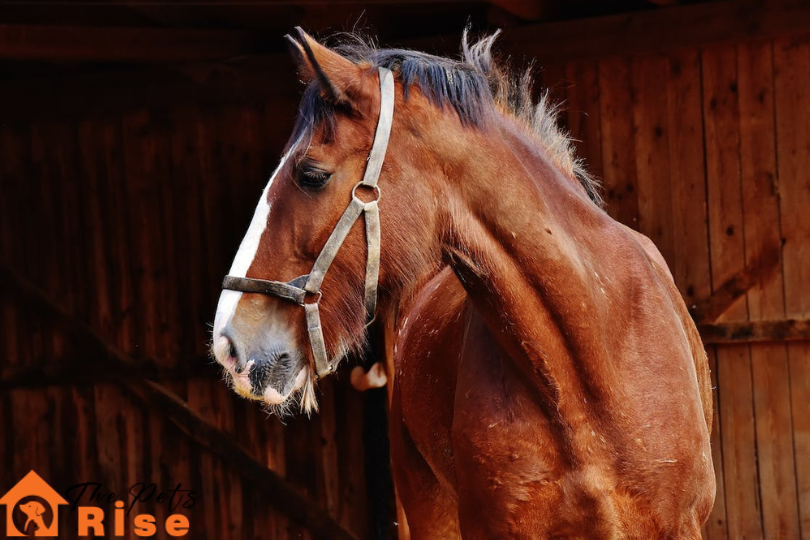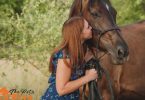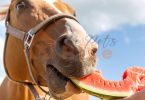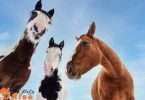There are some common horse feeding mistakes that one can make when they are feeding their horse. Feeding a horse can be an easy task but sometimes it just seems hard. Not all pets are the same and if you have experience owning a pet they can be great pets even for first-time pet owners. People often think that they have been feeding the pet horses or pets in general correctly but they still find the horses weak or they didn’t find the horse in good condition.
Horses are popular for having strong bodies. They have practically been very useful for humans. Horses have been there for carrying individuals around, driving carts, in wars, and in several other ways, they have been helping humans for centuries. In modern days, people still have them in their barns, taking care of them with modern amenities but feeding the horse is still something where one can make mistakes and wouldn’t have any idea about it.
We are talking about those who have pet horses in their private barn and not the commercial barns where everything is managed by professionals. Most of the time owners have little to no idea regarding how often should horses be fed. However, with this feed guide for horses, you will learn about common horse feeding mistakes. If you find your practices here then don’t delay making changes to them.
Paying Little Attention to Forage
If you don’t know what is left in the forage and how much your horse has consumed from it then you are paying little to no attention to your horse’s forage. Most professional feed guide for horses include that a horse on average will need to be fed primarily with hay and pasture grass. However, you can add modest amounts of concentrates, such as pelleted grain, or sweet feed. But it has been noticed that very little amount of attention is given to the forage offering while feeding the horse. You can get a horse feeding chart from its vet as well.
Most of the time people assume that hay is doing enough but not knowing what kind of hay. Getting a horse feeding chart is a good idea in this regard. You should have in mind that hay is the major source of calories for horses and it is different in different hay types and qualities. If you want to increase the weight of your horse then you should know how to feed your horse with the right type of hay. Just feeding him or her with old stemmy hay will not do anything. Instead, switching to more leafy hay that shouldn’t be overly mature will surely do the trick. That kind of hay will be packed with calories so you can increase the weight of your horse in the best possible way.
Too Much Grain Feed
If you are already offering some high-quality and balanced forage then you don’t need to add too much mineral pellet and vitamin unless they complement the ratio of forage being offered. This is one of the most common horse feeding mistakes. Grains are only good for horses when they are being offered in the most balanced way possible. If they have increased their workload or physiological transformation then they may require some increased level of grains. When it comes to feeding the horse, excess levels of grains will result in weight gain, and increased gastric and hindgut acidity, and in some horses, you may notice some sort of behavioral changes.
This doesn’t mean that grains aren’t good for horses. However, it is the overloading of grain bucket Grain and sweet feed that we are talking about. They are crucial sources of energy. And they have more soluble carbohydrates than most pet horses require. And more concentration than what your horse requires will cause some serious health and digestive issues in them: Though your goal may be increasing the weight of the horse too many calories may result in obesity. The high-starch grains are notorious for causing a variety of health problems. Problems such as colic and laminitis are caused by overfeeding of grains and this happens when you don’t know how to feed your horse? So for most horses, the lesser the grain is, the more would be better.
Not Giving Accurate Feed
Another common horse feeding mistake is that not everyone knows if “this” type of horse requires ‘that’ type of food or not. Depending on the environment the horse is living in, some horses may require extra calories than they are obtaining from regular forage. For example, horses who have to perform more than an hour of daily training in sports such as jumping or reining and horses who have to compete in strenuous sports, such as endurance or racing, will require extra rations such as grains or other concentrated feeds so they can maintain the weight. This factor will also determine that how often should horses be fed.
Before feeding the horses, it is better to check the feed guide for horses. In any feed store or catalog today, you will find labels on the bag of feed explaining what type of horse requires this feed. Feed varies for horses from growing youngsters, broodmares, and hard-working adults to senior citizens, etc. They have the formula for the type of horses that fulfills the number of calories and nutrition that those animals need. This means that giving the wrong type of food may result in an imbalance in health conditions and illness among horses.
If you are wondering should horses have hay all time then this is one of the most important items but without knowing their physical requirements, you cannot just rely on it. And let’s not forget how much young horses require mineral levels in their food. This will result in abnormal growth and they may develop some orthopedic diseases. So a simple answer towards the question about should horses have hay all time would be “depends”.
Not Adding Salt Or Minerals
This is one of the most common horse feeding mistakes, especially by new horse owners. Some of the most important components required for body function are sodium and chloride. They are crucial for several bodily functions. They usually are extracted from the body by sweating and should be replaced via proper diet. These nutrients are not present in the grains and grasses as well.
If you don’t know, or haven’t checked any horse feeding charts then mind that horses have a natural appetite for salt and they will consume everything that they need if they get the opportunity. The salt block where you are keeping the horses would be a great way to give access to vital nutrients. However, if there is more than one horse or horses then you should put multiple blocks in the stalls so every one of them should have access to minerals in their diet. So if you are wondering how often should horses be fed with salt then it will be everytime they are going to have their feed.
Not Following the Feeding Schedule
Horses are one of those animals that follow a regular feeding schedule. This is another common horse feeding mistake that one can easily overlook but it can cause stress among the horses. If they aren’t fed at similar times each day, they will feel stressed. One should provide forage continually throughout the day. Take care of grazing behavior that should exist when pasture isn’t available. While feeding the horse, note your time and follow that timetable each day.
Whether it is pasture hay or concentrated meals, make sure to feed your horse at an approximate time so they will stay comfortable. Not following the schedule will result in stress among the horses. Learn about how often horses should be fed and follow that schedule regularly. They may develop some behavior disorders such as raking their teeth on stalls, kicking, and cribbing. Also, when the horse is overly hungry, he may overly eat its feed and may suffer from digestive disorders.
Too Much Nutritions
As you may have already known, nutrients are important for every living being and so for your pets. But one of the most common horse feeding mistakes is that you may feed the horse with too much nutrition at once. As mentioned earlier, bagged horse food has labels on them describing what kind of horse requires them.
So without reading, overloading specific nutrients will create some serious imbalances in health. If you want to avoid harmful imbalances, learn about your horse’s health and age first. Some professional horse feeding charts can also be helpful in this regard. You can contact the vet and discuss the nutrients a horse is getting from his basic feed ration before making any addition of mineral or vitamin supplement in horse feeding.
Conclusion:
These are some of the most common horse feeding mistakes that one can make while feeding the horse. Horses are popular for their strong body and digestive structure. This doesn’t mean that you should take those for granted. Make sure to feed your pet horse accurately like any other bigger or small pets for kids or adults, to keep them healthy. Check other pet feeding guides to know more about pet care.







